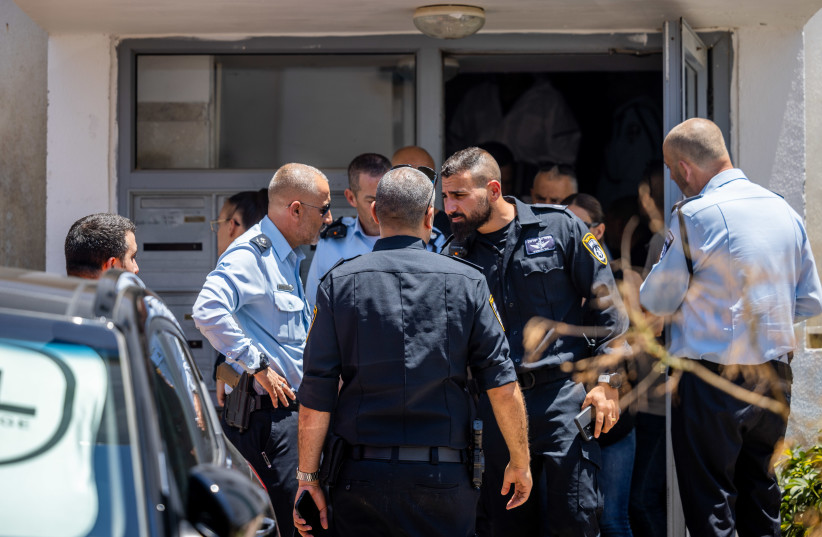Although Israel might be small in area, it’s an extremely diverse country in geography, population ethnicity and religious persuasion. Therefore, the priorities and responses to our local needs from elected officials and our police force should reflect this.
Some areas of the country encounter rampant car thefts. Other areas confront tacitly condoned domestic violence on a daily basis. Some cities, as well as Arab towns and Bedouin villages, are plagued with organized crime. Big city problems may be similar but may have different levels of emphasis as those facing most rural areas, including settlements and kibbutzim.
Let’s look at two situations that set an example. It might not be as exciting or sexy as other areas of law enforcement, but traffic control is something we confront every day. The lack of enforcement of traffic laws affects our personal safety, blocks access for emergency vehicles and impacts our overall quality of life.
One. Off-road vehicles on the road, specifically the extremely loud ATV off-road vehicles and dirt-bikes that zoom around residential city streets at all hours, even on Shabbat and holidays. These vehicles are mostly not street-legal (no license plates or required vehicle inspections) and are often driven recklessly by underage drivers who may, or may not, have a license.
The result of allowing ATVs to run amok without effective law enforcement creates both a dangerous, as well as a deteriorated, quality of life for the residents of the community as well as a hazard for pedestrians and these young, dare-devil drivers. The community you live in might be experiencing something similar or dealing with completely different issues, which is the point of prioritization of local matters.

Two. Parking problems include: (1) cars parked at an angle trying to fit into too small a space but jutting out into the traffic lane, causing drivers to either panic and to swerve into oncoming traffic to avoid crashing into the mis-parked, or conversely, to drive slowly to avoid the hazard; (2) vehicles parked on the sidewalk, blocking pedestrian access, even in red and white (no parking) areas, or taking up one whole lane on a two lane, two-way, narrow road, blocking or slowing traffic; and of course (3) parking by taking up two parking spots in a shopping center, creating either wasted adjacent spaces or a chain reaction of other cars unable to park properly or efficiently. (See more in “How to Keep Sidewalks Clear of Cars,” The Jerusalem Post, October 27, 2022.)
With that in mind, we must recognize that within the context of our diverse country, policing should be regional and local, all the way down to individual neighborhoods. According to the Foreign Ministry there are 73 municipalities, 124 local councils, and 54 regional councils. Yet in Israel, there is only one national police force, and it is divided into only six regional district commands.
All of the police responsibilities, and prioritizations, should be very locally oriented. However, the command and control of the Israel Police is national, not local.
Israel Police has “35,000 persons on the payroll.” However, “persons on the payroll” implies that it includes support/administrative personnel in the total number. Using a ratio provided by the Bureau of Justice Statistics of the United States Department of Justice, it’s estimated that the Israeli police force has only about 27,638 police officers.
One officer per 352 citizens
Unfortunately, based on a population of 9.7 million, this reveals that Israel has only one police officer for every 352 citizens. Well below the FBI target of one police officer for every 200 persons. And their focus and presence are not always in each individual local geographic area.
Each town, city or municipality has a different priority list of criminal issues, specifically based on the behavior of its citizens (influenced by demographics) or type of environment (beach, big city, desert locale, etc.). These issues require local police to be on patrol or in position. Therefore, structure, as well as command and control should come from, or with the strong influence of, the affected community via the mayor or councils.
Using the US as a reference, the FBI is an example of a national-level police organization. Each state has its own state police organization. Then counties (regional councils), as well as cities and towns (local councils or municipalities) have their own police forces.
When necessary, all police forces work in concert with each other. However, day-to-day, the focus is based on their local-specific directives and priorities.
Israel needs to take a similar approach. The Shin Bet (Israel Security Agency) and the national Israel Police are akin to the FBI. In turn there needs to be a separate structure focused on regional and municipality policing. This would be similar to the American model of a “state” police force for each regional council and “local” police for municipalities and local councils.
Internally, Israel is an open, democratic, Jewish state that has become a world player in many areas in such a comparatively short time. However, this rapid growth has left some internal infrastructure areas, like local policing, desperately lacking in its ability to serve the diverse population of the state properly and effectively.
While proactively keeping a wary eye on the rest of the world, Israel must now also be able to take a hard look inward and address some of the infrastructure needs resulting from its miraculous national success.
The writer and his wife made aliyah in 2015 and live in Ashkelon. He is a former NYC advertising agency and marketing executive and recently retired professor from Rutgers University’s School of Communication, but still does some consulting. Check out his blog: https://thetruthfulproject.blogspot.com, Twitter: @DavidsLevine
